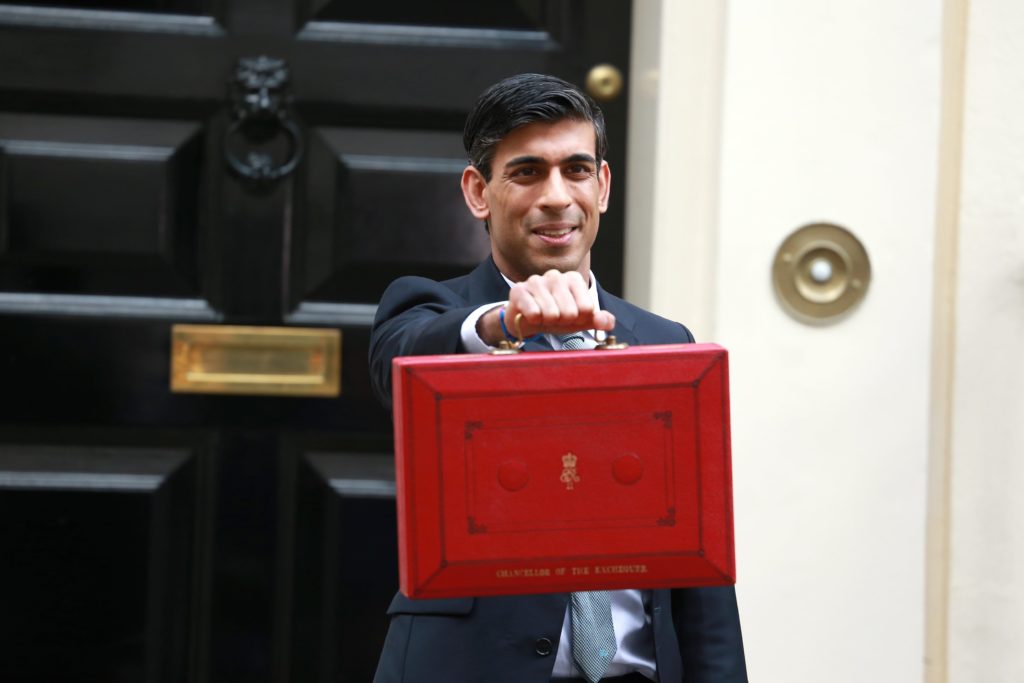Sector - Education & Training
What Spending Review Means for Construction

The UK Government has spent a lot of time talking about ‘levelling up’ the UK by investing in construction and infrastructure.
On 25 November, the Chancellor of the Exchequer, Rishi Sunak, set out his Spending Review. Whilst focusing on the recovery from the Coronavirus pandemic, education and wages for those in the public and private sector, Mr Sunak also outlined what it would mean for construction and infrastructure.
In this Spending Review, the Chancellor revealed a once in a lifetime investment in infrastructure throughout the United Kingdom, as well as announcing the anticipated National Infrastructure Strategy. The National Infrastructure Strategy sets out the Government’s plans to ‘level up’ the country and achieve net zero emissions by 2050.
There will be a record £100 billion in capital investment next year, the largest sustained investment for more than 40 years and a £27 billion real terms increase compared with 2019-20. There is also to be a massive investment in funding infrastructure of everyday life, including better roads, cycle lanes, and improvements to rail travel.
Mr Sunak was also quick to highlight that there would be improvements to school infrastructure, and that 500 schools will be rebuilt within the next five years. As well as this, he reiterated the Prime Minister’s promise for better health infrastructure, by building 40 new hospitals, and upgrading 70 throughout the nation.
He also put forward plans to further the levelling up of Britain, by launching a new £4 billion Levelling Up Fund, which will invest into local infrastructure and will help have a visible impact on people and their communities. This new fund, overseen by the Treasury, Department for Transport and the Ministry for Housing, Communities and Local Government, will see a new, more holistic approach taken to projects.
The Chancellor also said that the Government would be investing in 800 zero emissions buses, 5 million people would gain access to faster broadband and there would be better mobile coverage and 4G access across the whole of the UK.
Finally, Mr Sunak announced the creation of a new UK Infrastructure Bank, which is to be headquartered in the North of England, and will work in partnership with the private sector to help finance new investment projects throughout the country in the spring of 2021.
When it comes to housing, the Government has already committed to simplifying the planning process to help get the homes Britain so desperately needs built. In addition, Mr Sunak confirmed nearly £20 billion in multi-year funding – £7.1 billion for a National Home Building Fund on top of the £12.2 billion affordable homes programme.
Brian Berry, Chief Executive of the FMB, said: “Local builders stand ready to support a strong and green economic recovery, but the statement from the Chancellor today fell far short. We look to the National Infrastructure Strategy for more detail, but no mention in the Chancellor’s speech of low carbon homes or green jobs is unacceptable given the challenges we face. Confirmation of investment in further education and skills is welcome, as is the announcement of the National Infrastructure Bank. It’s important that local builders have access to both, if they are to provide the jobs, homes and growth the country needs coming out of the pandemic.”
Mr Berry concluded: “This year more than ever we have all appreciated how important it is to have a decent place to live. SME house builders stand ready to deliver more sustainable and beautiful homes, in each community and on small brownfield sites. I welcome the extra support from the Chancellor with the announcement of the National Home Building Fund and confirmation of Help to Build. Extra funding is welcome, but without urgent investment in our local authority planning departments to speed up decisions, projects are struggling to get off the ground.”
Overall, the Spending Review gives hope for many, after such an unpredictable 2020. Mr Sunak has certainly set out a plan for extensive investment to ‘level up’ the UK at a time when the country needs it most.
If you would like to read more like this, then please click here
Related Articles
More Education & Training Features
- Immigration policy must serve Britain, not party politics – NFB
29 May 25
The Government has published a new White Paper which sets out major reforms to the UK’s immigration system.
- Moving beyond EDI to embed good employment
11 Apr 25
The benefits of EDI - higher retention, more productive teams, and healthy morale - are crucial.
- Universities fear government reforms will stifle construction sector demand for higher and degree apprenticeships
3 Apr 25
Industry fears forthcoming apprenticeship reforms will deter many construction firms from upskilling their workforce.






